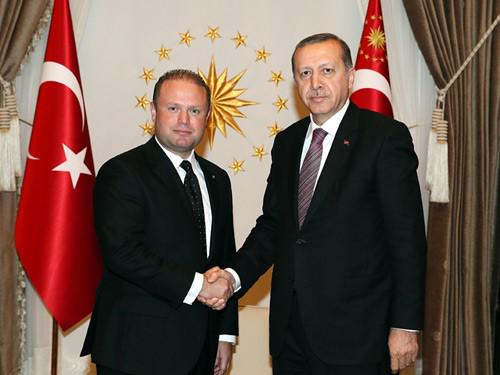I have often argued that the power of deciding on immunity from prosecution or relief from punishment handed down by courts to acquire witnesses for the prosecution should not be a political decision. Right now ministers decide who gets to be pardoned to turn state’s evidence and who doesn’t, when that decision has a direct and exclusive impact on the case made for the State by the prosecutor. In all other respects, the prosecutor is independent of any political interference. It is illogical to have an exception for this.
And it’s also dangerous, especially where the politicians themselves are directly concerned with the outcome of their own decision, such as whether a witness should and could be pardoned to testify against Keith Schembri, say, or Carmelo Abela.
But there’s another type of pardon. That’s the sort of pardon where the dictionary definition of the term – to forgive, to exercise mercy – fits more neatly.
Relieving someone of punishment handed down on the basis of prescribed rules after due process is, in principle, a compromise with justice. But laws are written by people and they are administered by people as well. And people make mistakes. Also attitudes change and though right and wrong do not depend on what people happen to think about it at any given time, what we think about what is proportionate action in response to right or wrong does change.
Some examples. We don’t necessarily think adultery is right, but we don’t think it’s for the state to send adulterers to prison. Our laws used to say so. Not anymore.
Until recently, cultivating cannabis in a pot on your bedroom window sill sent you to prison for 10 years. Now we’re one step away from deducting the cost from our tax returns.
Judges are required to hand down punishment within the range provided for by the legislator and if there’s error other judges can be appealed to, to review the decision.
But there are situations when even the most clement application of the law is, in specific circumstances, entirely unreasonable or causing harm that no legislator really ever intended.
The magistrate who sent two mothers to prison for transiting through Malta using false documents appears to have had more considerate options available to her. The punishment handed down, however, is well within the terms of the law.
Also, there need to be laws against travelling with falsified travel documents because if there weren’t any or if they weren’t enforced, there would be no point for travel documents at all. There most definitely is a point for travel documents.
But when rules like that are written, legislators cannot anticipate every possible set of circumstances that may arise. The circumstances of these two women, their sons and their husbands should move any human.
Claudia Calleja’s stellar report on today’s Times of Malta gives all the background anyone should need to feel that justice in this case is being handed down without mercy. And justice without mercy is unjust.
Many people have spoken out about the case.
The children’s commissioner said that the interests of the wailing toddlers separated from both their parents are being ignored and the interests of children should matter.
Human rights activists pointed out they would have expected an altogether different level of rigidity had the accused been Maltese, rather than Turkish. I am reminded of the architects found culpable for the death of Miriam Pace but allowed to walk free and hold on to their professional warrants because they claimed they needed to earn money for their family. This wasn’t the same magistrate so the inconsistency here is not personal. The activists may or may not be right about racist bias in the court process.
What seems to be the case is that the public’s reaction seems coloured by racist undertones. It is reasonable to think the outrage would have been greater had those cute little toddlers been Maltese.
The government, the agency in our State with the legal power to resolve the issue without delay, remains silent. Ministers can exercise mercy and pardon the imprisoned mothers, reuniting their children with them. They can offer them asylum in Malta as they are running from political persecution in their country. They are the best example of political refugees as many in their situation have been thrown in prisons in Turkey for their political opinion. Their husbands, now in hiding in Greece, fearing, reasonably, judging by the experience of other people in identical situations, being kidnapped by the Turkish state and dragged back to that political hell hole, should be given safe passage and reunited with their families here.
Officials will prefer prison to force other political refugees escaping Turkey to look for some other country to which to escape or through which to transit on their way out, the classic ‘deterrent’ policy. But deterrents are for criminals, not for people escaping from unlawful imprisonment and to exercise their fundamental human right to family life in the interest of their children.
Giving these people asylum will annoy the Turks and our government is keen not to annoy the Turks. They are in awe of Erdogan’s regime and are enablers of its aggressive expansionism right up to our backdoor in Libya. That may be why our Ministers are unable to hear the whimpering cries of two young boys kept apart from their mothers.
